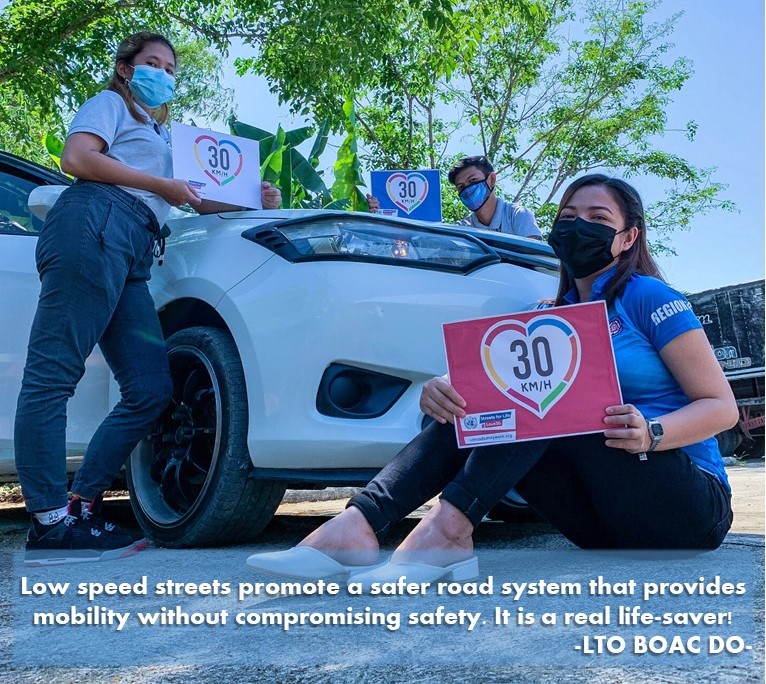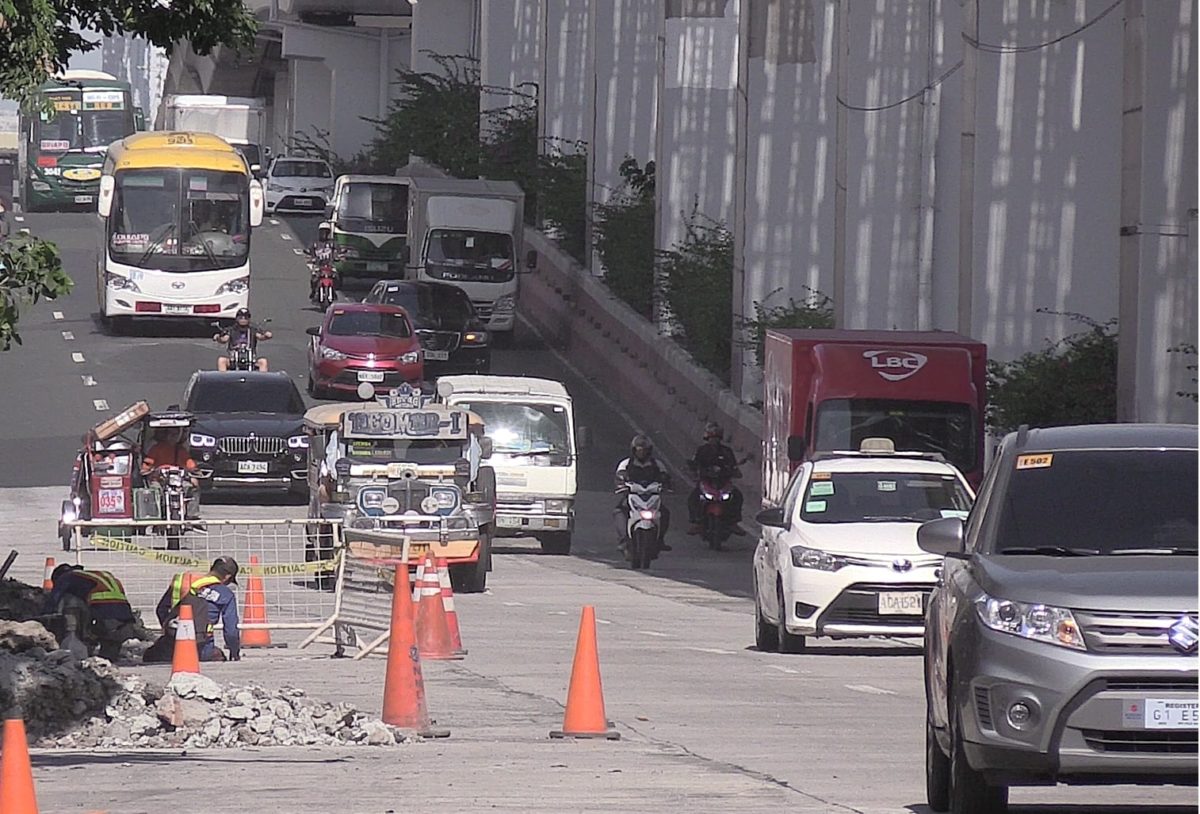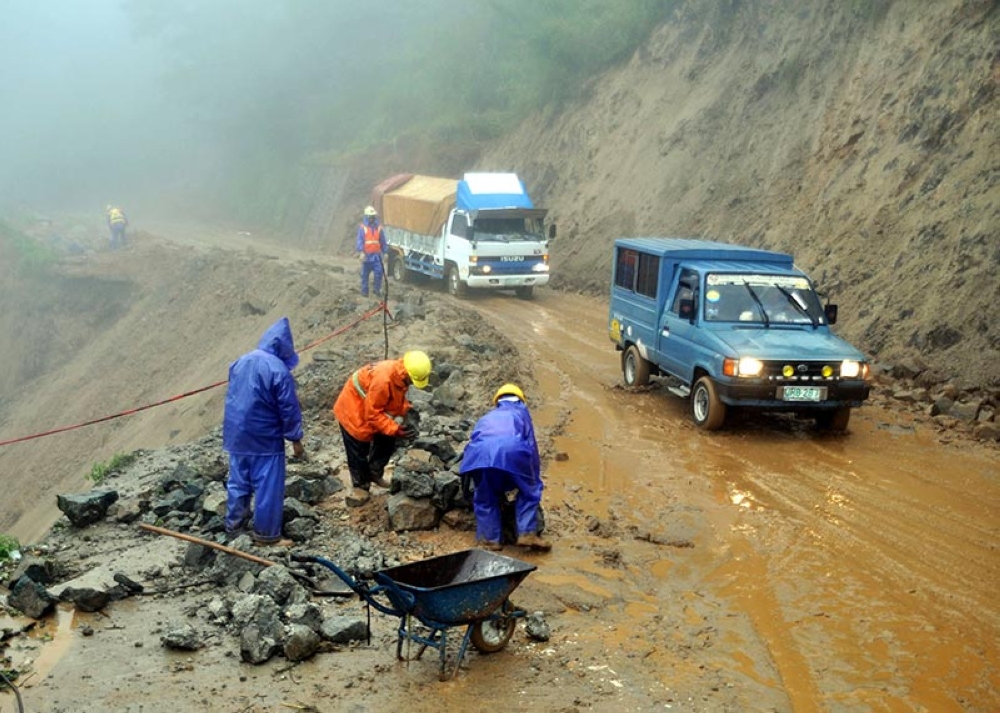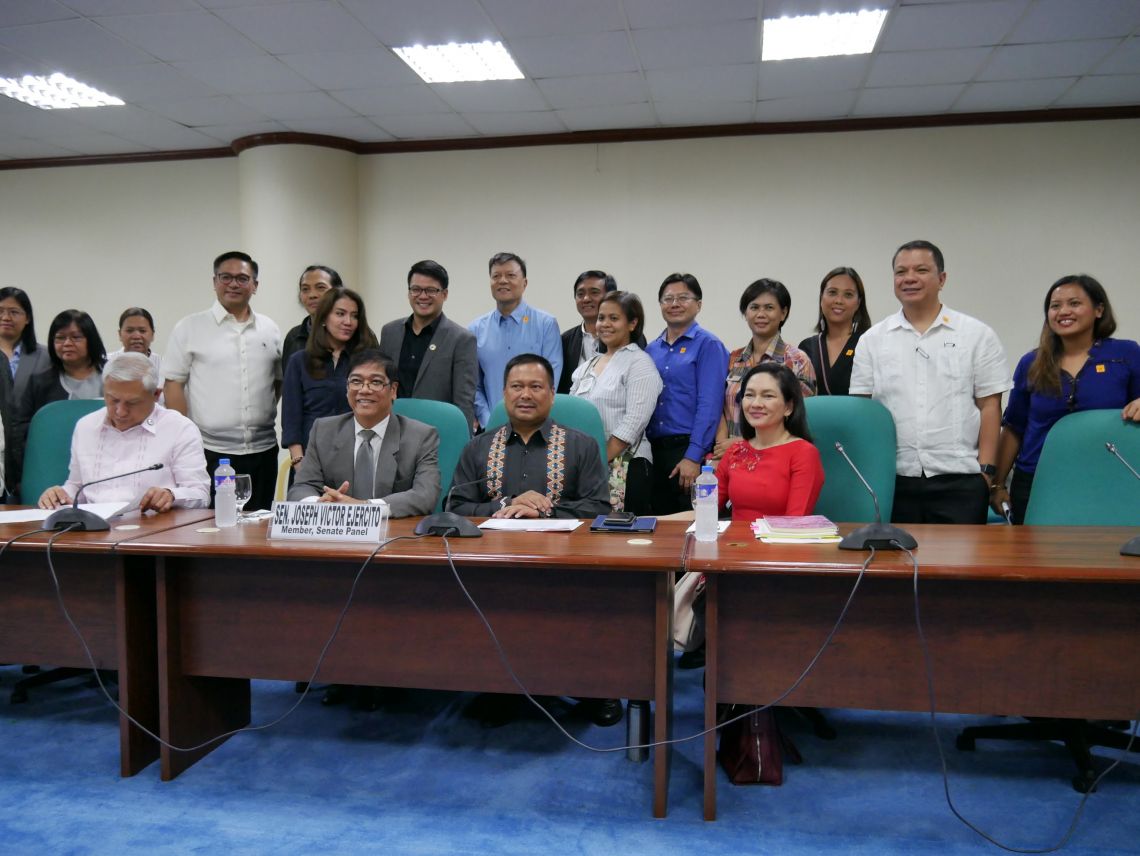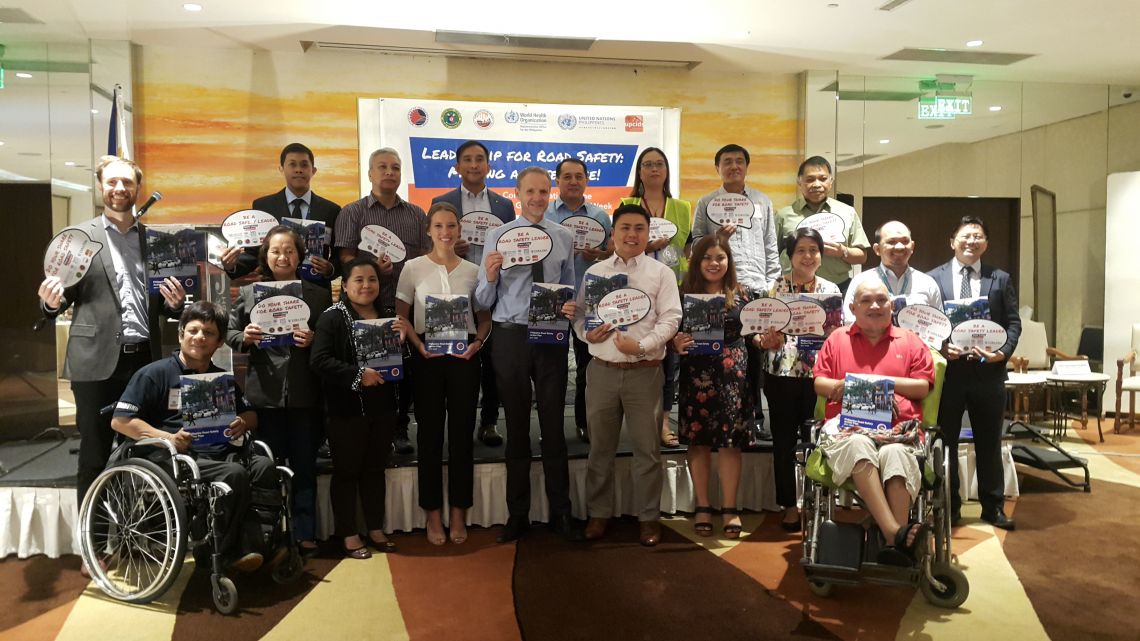
Road safety advocates and stakeholders pose together with their PRSAP copies and road safety speech bubbles.
The Philippines is eyeing a 20 percent reduction in road fatalities by 2022 but it is struggling with limited funds for road safety, Transport Undersecretary Mark De Leon said, as he called for broad support in order to achieve a vision of zero deaths on the road.
“We will need road safety management, safer roads and mobility, safer vehicles, safer road users, post-crash response,” he said, referring to the five pillars of road safety, during the official launch of the 2017-2022 Philippine Road Safety Action Plan (PRSAP).
The five-year action plan, based on the original 2011-2020 plan, sets the ‘interim target of reducing the road fatality rate by at least 20% by 2022 towards a vision of a Philippine society with zero deaths on the road’.
The launch of the updated PRSAP on May 9 was the highlight of the Philippines’ observance of the 5th United Nations Global Road Week of Action for Road Safety, May 6-12, in Pasay City organized by a coalition of road safety advocates that includes government officials, private individuals and representatives of the World Health Organization (WHO).
De Leon called for support from road safety champions in order to achieve fewer road deaths amidst a scarcity of funds for road safety projects following the abolition of the Road Board earlier this year.
“Congress has abolished the road board, so government doesn’t have yearly budget allocated for road safety. In the meantime, that we don’t have that budget, we will need everyone’s support to obtain that 20% goal reduction,” he said.
President Rodrigo Duterte signed last March 8 Republic Act No. 11239 dismantling the Road Board, the office that used to manage billions of pesos worth of Motor Vehicle User’s Charge (MVUC), an annual fee imposed on vehicle owners.
The funds are allotted for road maintenance, vehicle pollution control and other road safety programs. But the Commission on Audit had found that the funds were being misappropriated, and the Board vulnerable to corruption.
Under RA 11239 the Department of Public Works and Highways will assume all obligations and liabilities of the Road Board as well as its records, property, assets, equipment and funds. The implementing rules and regulations on the allocation of the MVUC have yet to be drafted.
A shared responsibility
Emphasizing that road safety is a shared responsibility, De Leon said staying safe on the road should be every person’s goal. “We cannot rely on a single person alone. Each and every one of us should be champions on road safety. So remember, the next time you will be on the road, remember the next time you’ll be on your vehicle with your kids, remember to be champions as well.”
The five pillars, De Leon advocates, should ‘have their own champion.’
“I, myself, cannot be champion for all these pillars. I am not an expert on post-crash response, that’s why DOH is here,” he added, referring to the Department of Health.
De Leon also warned against road safety legislation becoming a “useless document” if the strategies for the plan are not implemented well.
Land Transportation Office (LTO) Director Francis Ray Almora for his part said law enforcement requires public education and that is what his office is now focusing on.
“We are having that paradigm shift from just plain enforcement to that of public education. Public education and enforcement, we believe, need to be done together to really have that behavioral change that will result in more disciplined road users,” the head of LTO’s Law Enforcement Service said at the forum.
“Change process in the context of law enforcement, we believe, is our objective now,” he added.
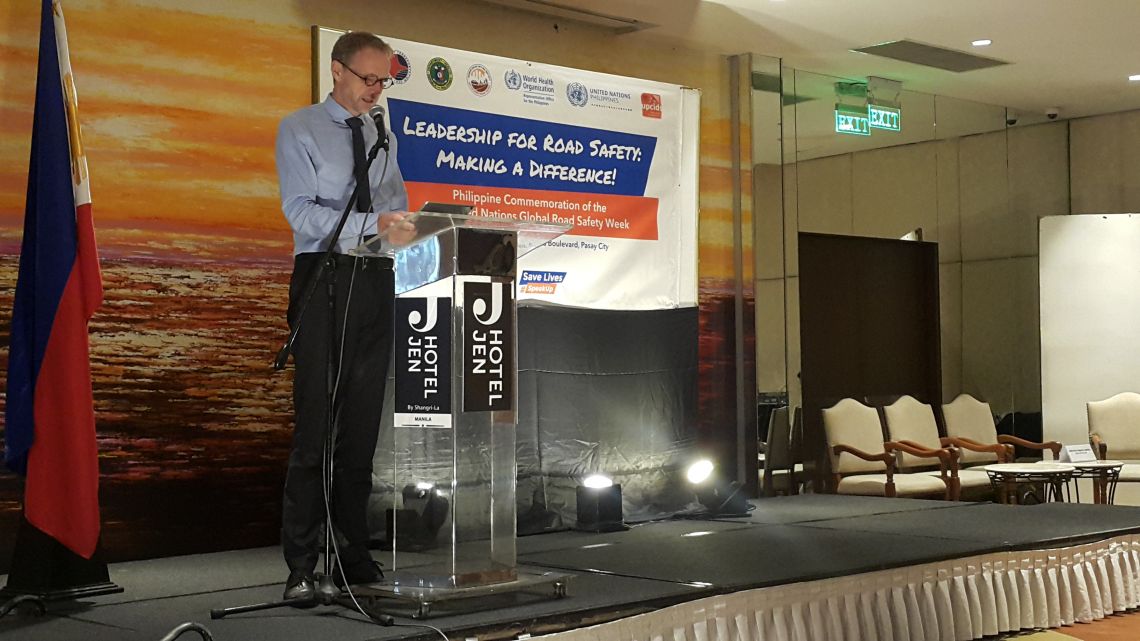
WHO representative to the Philippines Dr. Gundo Weiler discusses road safety trends in the Philippines.
WHO Representative to the Philippines, Dr. Gundo Weiler commends the Philippines for having a “really strong road safety coalition.”
He noted, however, that despite the good efforts made in the Philippines and in other countries, the incidence of death from road crashes continues to rise.
“We are now at the record number of 12,000 fatalities every year,” he said at the event to mark road safety week. Tens of thousands more are injured in road crashes in the Philippines every year.
The number of fatalities related to road traffic crashes stands at an annual rate of 1.35-million globally. Road traffic incidents are the top killer of children and young adults aged five to 29. The most vulnerable sectors are the poor, recording 90%of all fatalities in low-and middle-income countries, even though they do not bear 90% of the traffic rate, according to the WHO 2018 Global Status Report on Road Safety.
“We can advocate for better laws and support those who have been affected by road traffic crashes. As road users, all of us can make a difference. But everybody also beyond this has the potential to speak up and become a proactive leader for road safety,” said Weiler.
Anyone can “speak up to save lives by documenting ideas and recording your suggestions, and by prompting decision-makers to act on them,” he added.
This story is produced under the Bloomberg Initiative Global Road Safety Media Fellowship implemented by the World Health Organization, Department of Transportation and VERA Files.

